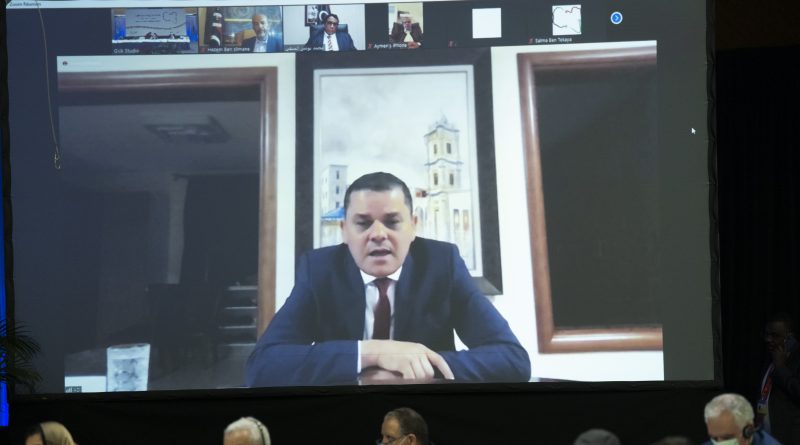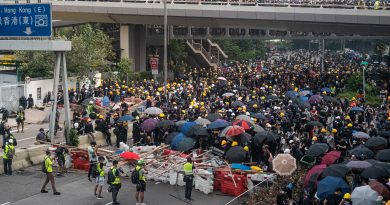Libyan Parliament Approves Unity Government
Charleigh Stone
Staff Writer
Libya’s parliament has appointed a new interim government in hopes of progressing unification in the conflict-ridden state. The government of Prime Minister Abdul Hamid Dbeibah will replace the rivaling East-West administrations that have been ruling Libya for years, a transition that PBS reports was approved by 132 lawmakers.
The appointment of officials to serve within the unity government has emerged after months of negotiation, with the United Nations brokering a political roadmap to hold parliamentary and presidential elections on December 24. PBS furthers that Dbeibah, a powerful businessman from the western city Misrata, pledged to respect this date following his confirmation. He also told lawmakers that “the war should not be repeated. We should not kill each other again,” as the country progresses toward unification.
The death of de facto leader Muammar Gaddafi in 2011 destabilized Libya, causing the country to split into factions. Since 2014, two rival parliaments governed Libya, with rebel general Khalifa Haftar and the Libyan National Army (LNA) occupying the East and the UN-recognized Government of National Accord (GNA) occupying the West. The UN has taken an active role in Libyan post-conflict efforts at the request of the country’s authorities, establishing the United Nations Support Mission for Libya (UNSMIL) in 2011. UNSMIL’s mandate has been modified and extended by the Security Council every year since its inception, with the current mandate extending the mission until September 15.
Fayez al-Serraj, head of the GNA, congratulated the unity government that will replace his own administration. Deutche Welle reports that Dbeibah’s cabinet was approved after two days of intense deliberation in Sirte, obtaining a vote of 132-2 in favor, with 36 members absent. Afterwards, Dbeibah told parliament that “through this vote, it became clear that the Libyans are one unit.”
The new cabinet includes 33 ministers and two deputy prime ministers who are said to be representative of Libya’s geographic areas and social segments. The executive branch also includes a three-member Presidential Council that will be chaired by Mohammed Younes Menfi, a diplomat from Eastern Libya. Najla El Mangoush, a lawyer and human rights activist, will serve as Libya’s first female foreign minister.
However, despite the advancement of peace plans, obstacles to unity remain. Reuters reports that Dbeibah’s appointment and the size of his cabinet have drawn corruption accusations both domestically and abroad. A UN inquiry found that he allegedly gained power after his supporters offered bribes to attract votes during the Libyan Political Dialogue Forum, a UN-selected assembly of 75 Libyan representatives from the country’s warring factions that gathered to elect an interim prime minister to serve until national elections were held.
Dbeibah’s office denies the claims as fake news designed to disrupt the political process, urging the UN to reveal the details of its investigation into the accusations. According to The Guardian, the bribes were as high as $200,000, with one delegate hearing that as much as $500,000 was offered. The Los Angeles Times reports that a UN panel of experts determined at least three participants at the political forum were offered bribes, though the prime minister candidate was unnamed, and the participants were “categorical in their rejection of the bribes.”
Dbeibah has also faced backlash for not delivering on promises that 30 percent of ministerial posts would go to women. In the end, only five women were appointed among 31 government posts.
In a joint statement issued by France, Germany, Italy, the United Kingdom, and the United States, the approval of a unity government has been praised as a “critical step” despite the “long road ahead.” While the main task of the new administration is to prepare Libya for the Dec. 24 parliamentary elections, Al-Monitor reports that they will also have to provide essential public services, initiate reconciliation between warring factions, address critical national budget needs, and implement the October 2020 ceasefire agreement brokered by the top UN envoy for Libya, Stephanie Turco Williams.
The process is further complicated by the presence of foreign powers taking sides in the conflict. Historically, Haftar and the LNA have seen comradery from Egypt, France, the United Arab Emirates, and Russia, while the internationally recognized GNA has been backed by Turkey and Qatar. As Libya’s new unity government approaches these tasks, however, there is still hope that the decade-old conflict is on the road to resolution.


